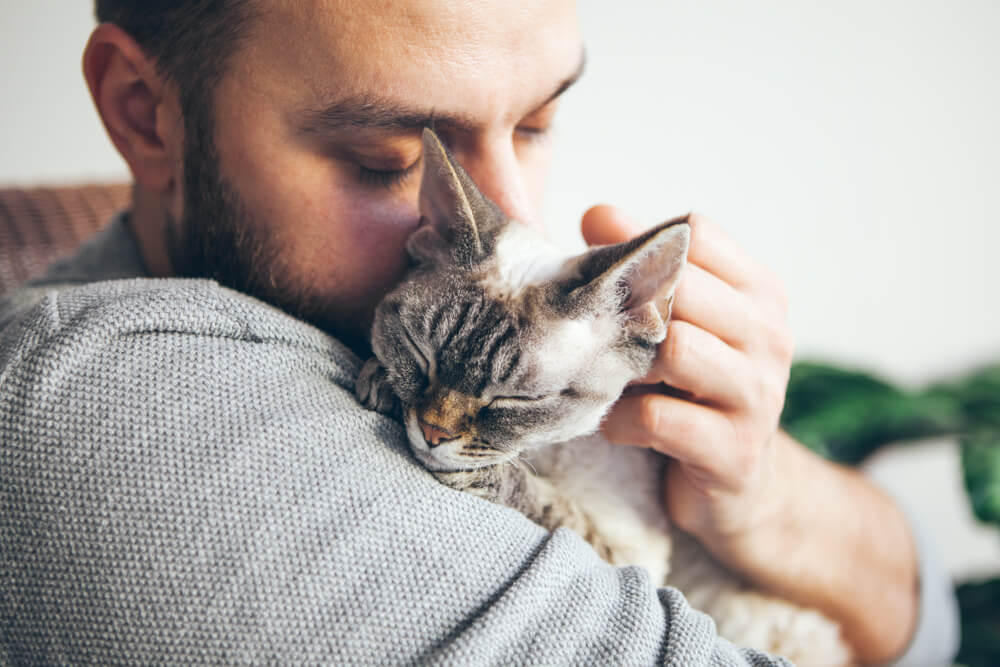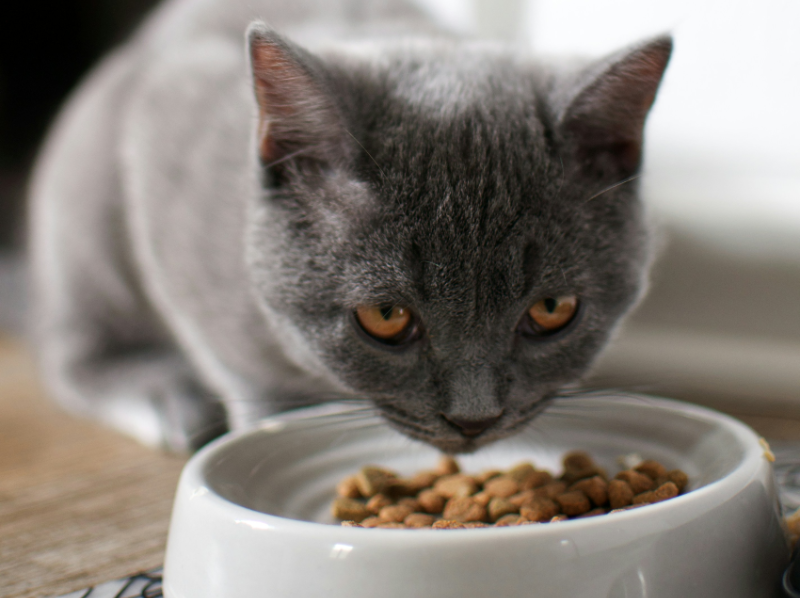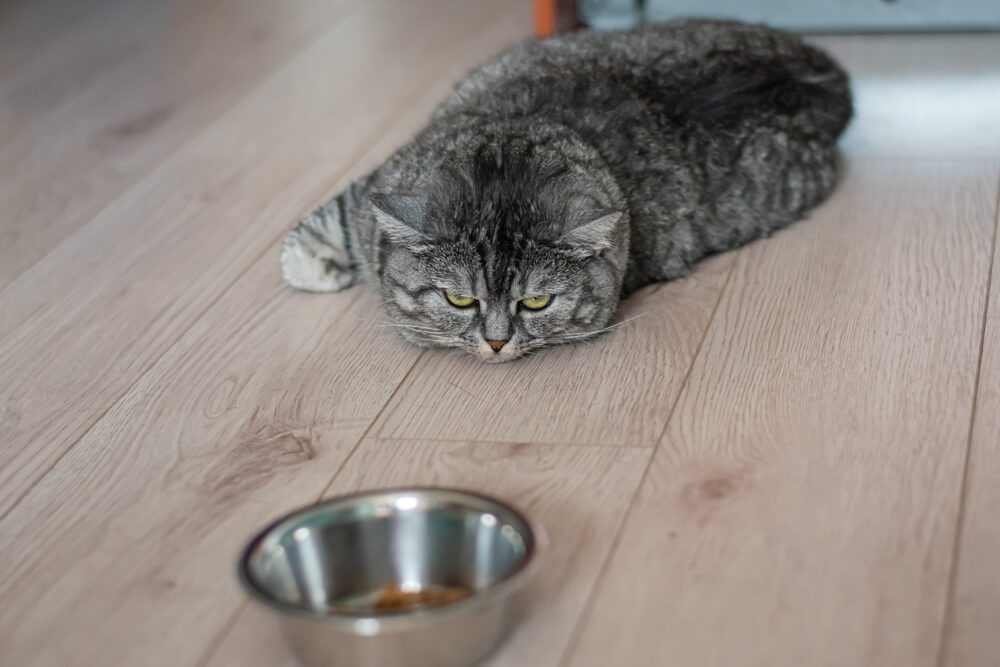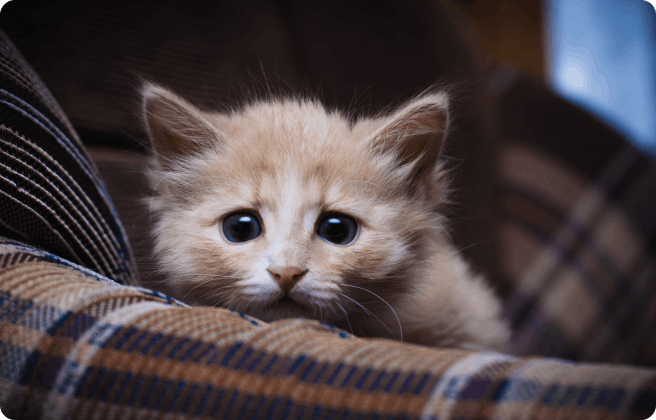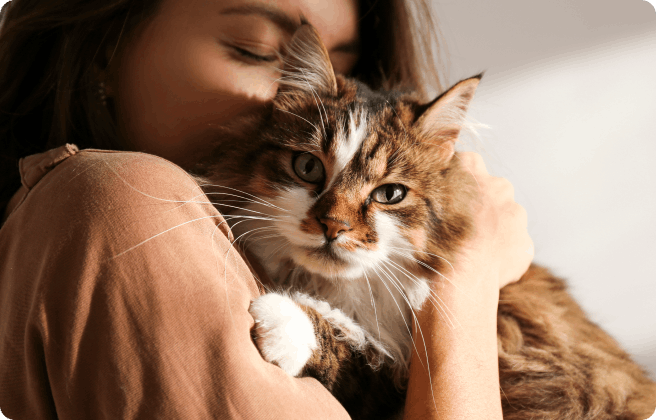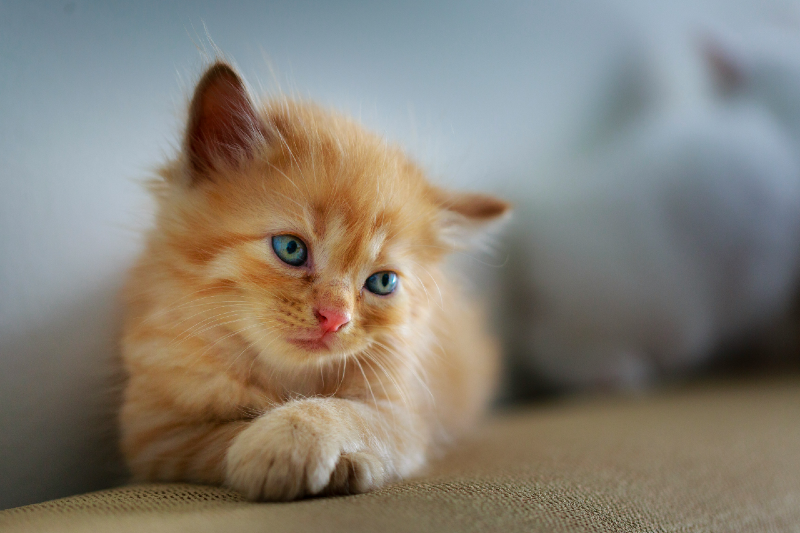
Feline parvovirus (FVP), also known as feline parvo, feline panleukopenia or feline infectious enteritis, is a virus that can cause severe disease in cats, in particular kittens.
It can be serious enough to cause death, so precautions are needed where possible.
It’s usually spread by unvaccinated cats, and can be passed from infected pregnant cats to their litter. Kittens often struggle to recover from FVP, as their immune system is not fully developed. As a result, many kittens who pick up FVP do not recover from the illness, especially in rescue centers or catteries where there’s a high volume of cats mixing together, some of whom are unvaccinated against the virus. Kittens who are born with FVP, transmitted from their mother in the womb, often have problems with coordination and feeding, as it affects their brain.
The disease is spread in fecal matter or urine, as well as via fleas, and it can survive for months in the environment, so unless a contaminated surface is bleached, it could remain there for a while.
The best way to stop your cat from contracting FVP is to ensure they are vaccinated. You should get them vaccinated against this disease as soon as possible, usually from eight or nine weeks old. The most common age at which cats get FVP is three to five months old.
Signs your cat might have FVP
Some cats don’t show any signs that they are ill. Others may display some of the following symptoms:
- Lethargy and depression
- High temperature
- Diarrhea and vomiting
- Stomach pain
- Loss of appetite
One of the symptoms of FVP is a low white blood count, which is caused by the virus traveling via the blood and infecting the bone marrow and lymph glands.
If you suspect your cat might have feline parvo, you should contact your vet immediately.
Treatment of FVP
Treatment of feline parvo needs to be swift and depends on quick diagnosis by your vet. A rapid supply of intravenous fluids and antibiotics sometimes helps. Stopping the vomiting is also important, while attempting to reduce contamination as much as possible.
Unfortunately for many cats, though, once the disease is diagnosed, it’s too late to do much about it, and the chances of death are high, and currently, there’s no medication that can treat the virus directly.
We uphold the highest editorial standards when creating the authoritative content pet parents rely on and trust.
Every piece of clinical content on the Cat Food Advisor is reviewed by our certified Veterinary Advisory Board, which consists of licensed veterinarians and medically certified specialists.
Our reviews are completely independent; we are not paid by any pet food company to promote their products favorably. We do not accept money, gifts, samples or other incentives in exchange for special consideration. For more information see our Disclaimer & Disclosure page.




